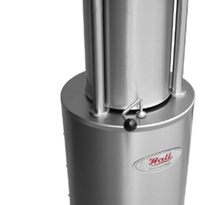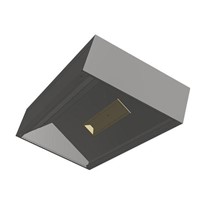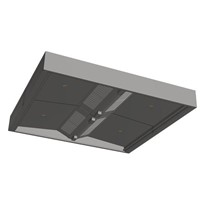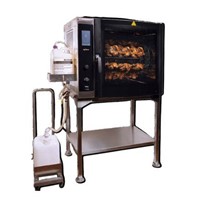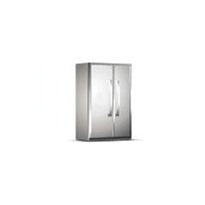The kitchen has an uncanny ability to get dirty very quickly and it’s important to establish cleaning habits to deter the growth of bacteria. A dirty kitchen can shorten the lifespan of certain appliances due to food residue and grease buildup. If you want your commercial kitchen to operate smoothly, keeping it clean should be of utmost importance.
Here is your ultimate guide on keeping your commercial kitchen clean, hygienic, and organised.
Hygiene should be the number one priority
When running a commercial kitchen, implementing proper hygiene should be your main concern. It is estimated that an average kitchen chopping board contains more bacteria than a toilet seat which is why it’s important to sanitise your kitchen equipment by washing them in hot, soapy water. Commercial dishwashers are great at killing bacteria on dishes. Ideally, you want the temperature to run at 55-75° Celcius to eliminate these harmful microorganisms.
Aim to dry out kitchen sponges and washing brushes to minimise bacterial growth. Also, remove any standing water from your dish drainers and don’t forget to mop your floors before the day ends. Investing in a steam mop will go a long way towards keeping your commercial kitchen hygienic as it can eliminate 99% of bacteria using high temperatures of steam.
Wipe down your kitchen equipment
Countertop ranges, dishwashers, and refrigerators can build up tons of grease and residue after a busy day. Thus, it’s crucial to wipe down your equipment to reduce oily residue. All it takes is a quick wipe of a cloth damped with undiluted vinegar. Vinegar works great for breaking down grease buildup while acting as a natural disinfectant to kill germs like salmonella and E. coli. While you’re at it, clean the kitchen cabinets and the microwave as well. To combat bad odour, a freshly squeezed lemon mixed with one cup of water can help freshen up your kitchen equipment and remove any unpleasant smells.
Use warm, soapy water afterwards and clean your kitchen equipment with a sponge to completely remove any remaining residue. This will help prolong the lifespan of your kitchen equipment and reduce the risk of unwanted repairs.
Pay attention to the sink
The sink is where leftovers and food scraps accumulate, making it one of the dirtiest parts of a commercial kitchen. Take out the food filter and discard all the bits and pieces. Give the strainer a good rinse and grab an old toothbrush to dislodge any stuck particles. Sometimes the sink smells funky because of all the accumulated food gunk. To give your sink a thorough clean, use one tablespoon of baking soda mixed with freshly squeezed lemon. This will remove any unpleasant odours as well as food stains and oily residue. After that, use a mild soap and sponge to scrub your sink from the outer rim all the way to the drain.
Return the food filter and run hot tap water for at least 10 seconds before wiping it dry with a clean cloth. Remember, a clean sink is vital to the overall hygiene of your commercial kitchen so make sure to clean it at the end of the shift.
Organise your kitchen tools
Sorting out your kitchen tools can help boost efficiency within your kitchen. You want them within easy reach to cut, slice, and dice food in a quick and successful manner. It also helps to keep your kitchen organised so it maintains its aesthetic appeal. A commercial kitchen that’s full of clutter can easily throw you off while cooking so it’s best to keep your kitchen tools as organised as possible.
The knives should always be stored in a knife block and the ladles and slotted spoons should be hung on a pegboard for easy access. To keep things simple, have your kitchen tools close to your cooking equipment. That way, you don’t have to reach too far for your cooking utensils when you need them. By reducing the clutter inside the kitchen, you’ll be able to clean cooking utensils more effectively.
Prevent pest infestation
Pests such as cockroaches and mice can contaminate your food with all sorts of bacteria. Therefore, you should prevent pest infestation from the get-go by hiring a food service pest control. Cockroaches can hide from even the smallest nook and cranny and ants can establish a colony on unseen areas of your kitchen. Have a pest control technician inspect your restaurant on a regular basis to keep unwanted pests from entering your kitchen.
Have a cleaning checklist
With a multiple of activities happening inside the kitchen, it can be tricky to figure out what needs cleaning and which should be prioritised first. This is where a cleaning checklist can come in handy. For example, cooks and kitchen staff should switch cutting boards and wipe their prep area prior to preparing each meal. After the shift, the fryers should be cleaned, the grills should be brushed, and grease traps should be cleaned out.
Some commercial kitchens hire a night kitchen porter who comes in the evening and ensures the kitchen is up to cleaning standards before the next day of service. Most restaurant owners hand over a checklist to the kitchen porter to save time and money in keeping the kitchen clean and hygienic.
The importance of a clean commercial kitchen
Proper hygiene, cleanliness, and sanitation are crucial to operating a commercial kitchen. When the kitchen is neat and organised, the staff will be able to work more efficiently and you’ll be able to prolong the lifespan of your kitchen equipment. You want to provide your customers with clean food and it all starts where their meal is prepared. These guidelines will help you keep your commercial kitchen clean so you can minimise the growth of bacteria and make it a healthier place to prepare delicious food.


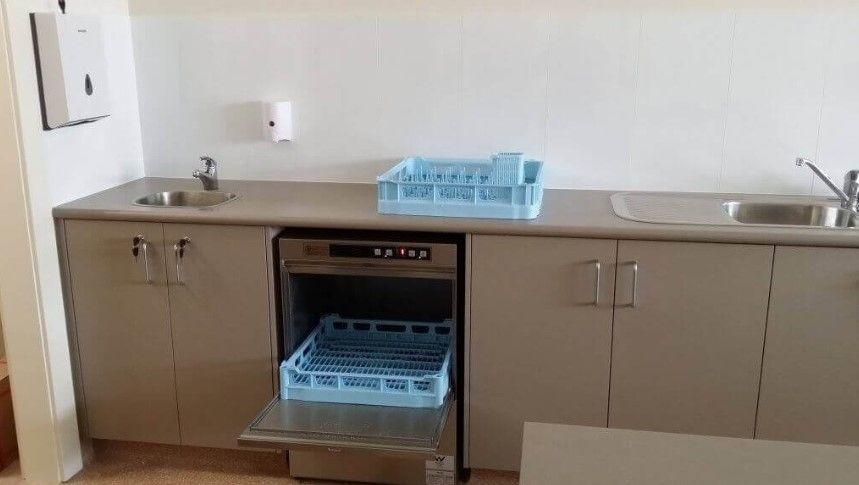



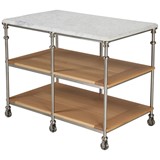
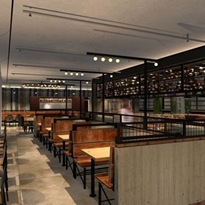
-205x205.jpg)



